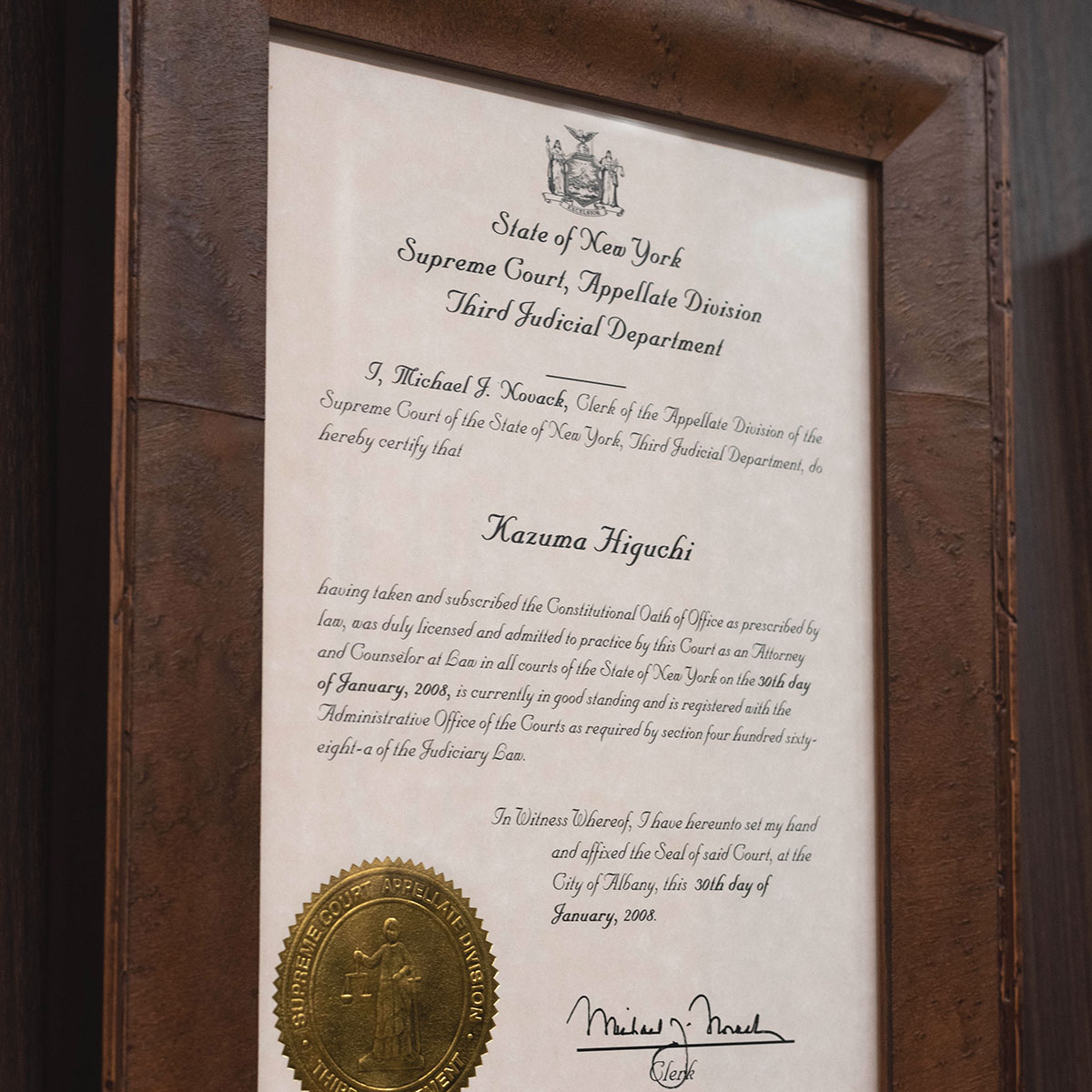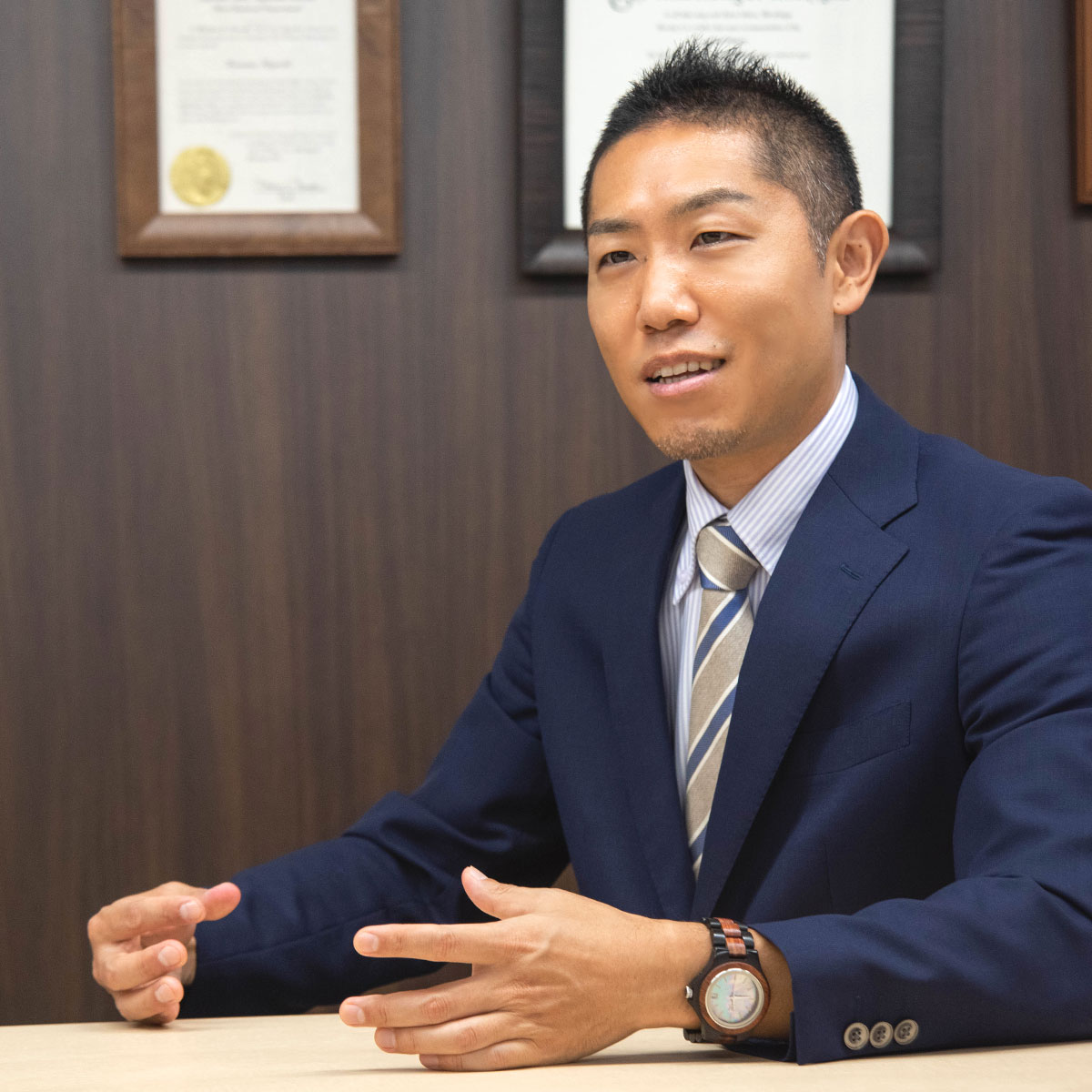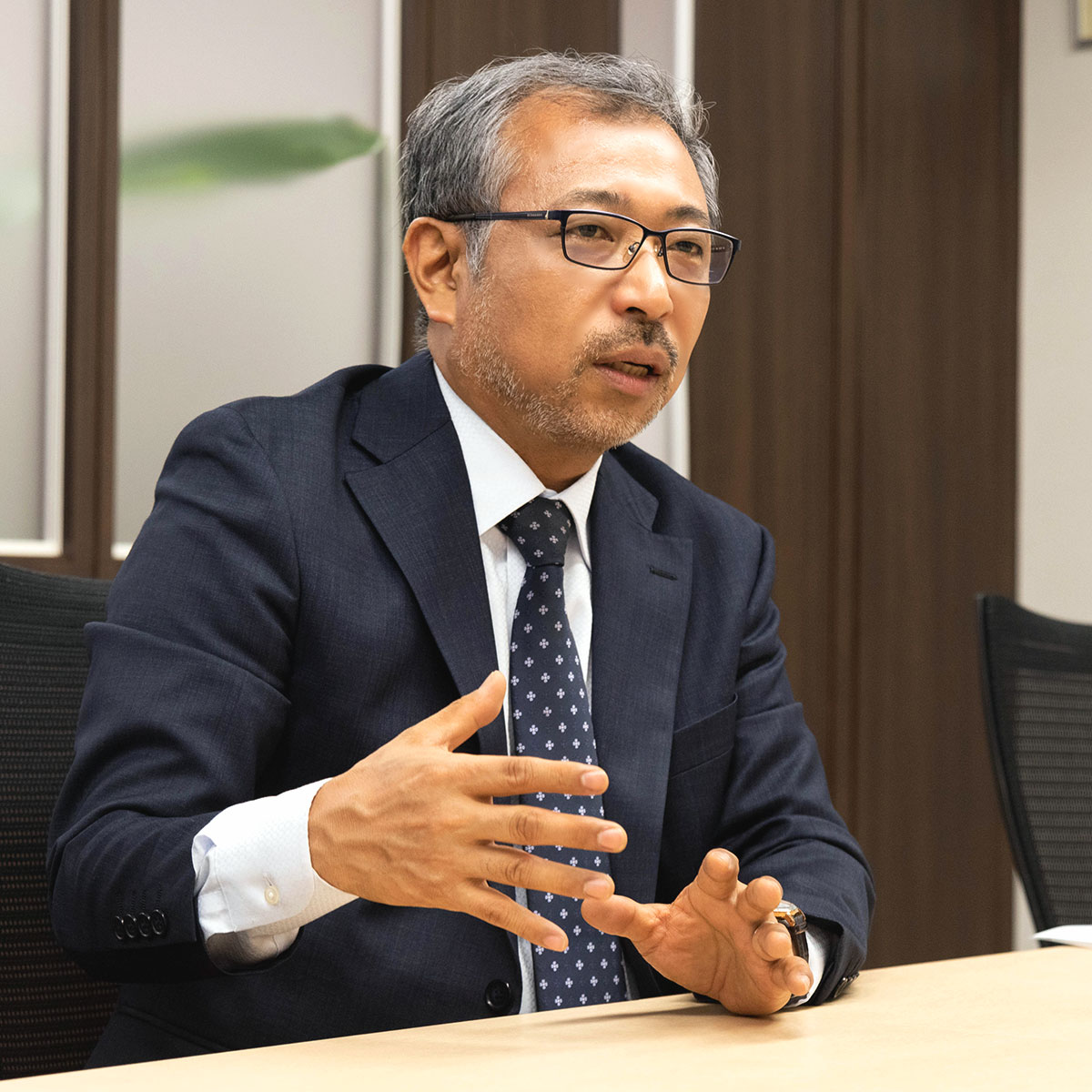
Contracts” as a line of defense
From your point of view, what do you think of the current international legal system of Japanese companies?
Not many companies have things in hand there. Even among listed companies, only a handful have a number of in-house lawyers and staff who can speak English at a business level. Some of those companies have sales figures in the realm of hundreds of billions of yen (a few billion US dollars), and yet they don’t usually have more than ten people in charge of legal affairs. And the number of companies that have staff who can perfectly rewrite a contract in English and conduct negotiations is extremely limited.
Even though the risk of encountering problems is greater when dealing with a foreign party rather than a domestic one?
Above all, pursuing legal proceedings is very expensive, so unless you are dealing with a very large case, it might be more cost-effective not to do so in the first place. You might break even if you get tens of millions of yen (hundreds of thousands of US dollars) out of it, but you will lose money if you only get a few million yen (tens of thousands of US dollars), so in the latter situation it’s natural to feel that the better option would be to not file a lawsuit. That’s why it’s so uncommon to hear of lawsuits initiated in Japan. Granted, you can easily control the cost to a certain extent if you only want to have a Japanese lawyer negotiate on your behalf, and even if you take things a step further and hire a lawyer based in the other country to do it, you can still set an upper limit on the cost. But once you start a legal proceeding such as a lawsuit or arbitration, it’s not easy to drop it halfway through. For disputes within Japan, many lawyers use the traditional approach of asking for a retainer fee and then a contingency fee, which makes it easier to formulate a budget, but overseas lawyers usually charge you by the hour, even for dispute cases. If you were to rely on a domestic lawyer to manage everything on top of that, they also usually work on a time charge basis, so the cost would go through the roof. And then if you’re pursuing an arbitration, the arbitrator’s fee would be a further 50,000 yen (around 450 USD) per hour in addition to the lawyer’s fee. In short, it’s very difficult to initiate a lawsuit here in Japan. For debt collection, you could get away with spending about one or two million yen (about ten to twenty thousand US dollars): Japanese lawyers are familiar with all of this, and if you get a corporate lawyer, it’s easy to negotiate the cost. Outside of Japan, however, a few million yen (tens of thousands of US dollars) will not be enough, and you might find yourself falling short even with some tens of millions of yen (hundreds of thousands of US dollars).
So, to prevent trouble developing to that point, it’s necessary to set up a sufficient system in advance?
Problematic situations don’t just happen out of the blue—there will always be discussions before they arise, and it’s only if that discussion doesn’t solve anything do you end up thinking, “OK, a lawsuit or an arbitration is the only solution”. And during the “discussion” phase, your only point of reference is your contract. For better or worse, people in Japan have a unique culture based on mutual trust, so even if the contract ends up being insufficient, domestic cases can often be resolved through discussion in some way. But when you are dealing with someone whose language, culture and way of thinking is completely different to yours and you start arguing about what was said or not said, your contract becomes your basis for everything. That’s why contracts are all the more important when it comes to international business relations. I would be interested to know the extent to which people care about this, and the extent to which they are willing to spend money on it.
In terms of prevention, companies also need to read the contract carefully and ensure that it’s as favorable to them as possible, don’t they?
Prevention is 90% of the purpose of making a proper contract. Of course, it’s important to have an advantage in the event of a court case, but at that stage you’re already shouldering a considerable burden in the fact that it’s gone to court at all. The meaning of prevention from a contract is twofold: to prevent disputes from happening in the first place, and if they happen regardless, to be able to use them to your advantage during the negotiations that happen before starting legal procedures.
Depending on the country and region, I imagine there are more ways of thinking about contracts than we Japanese can imagine.
The importance placed on the contract itself can depend on your business partner. Europe and the United States both have a culture of placing great significance on contracts. The importance of something being “written in the contract” is completely different there, so if what you’re saying is written in the contract, you might find that they concede the point easily. On the other hand, Japanese people will often say, “I thought I didn’t need to write this on the contract for you to understand it”, but this argument doesn’t work with western companies: even if you say “but that was written in an e-mail”, they will reply “yes, but it wasn’t in the terms of the contract”. In contrast, emerging countries such as those in Asia tend to be less mindful of contracts, but this doesn’t change the fact that the content of the contract is the starting point of any discussion. You cannot be careless with the contract just because the other party disregards it: instead, you should make the contract content as advantageous for yourself as possible, which will help you out later.


